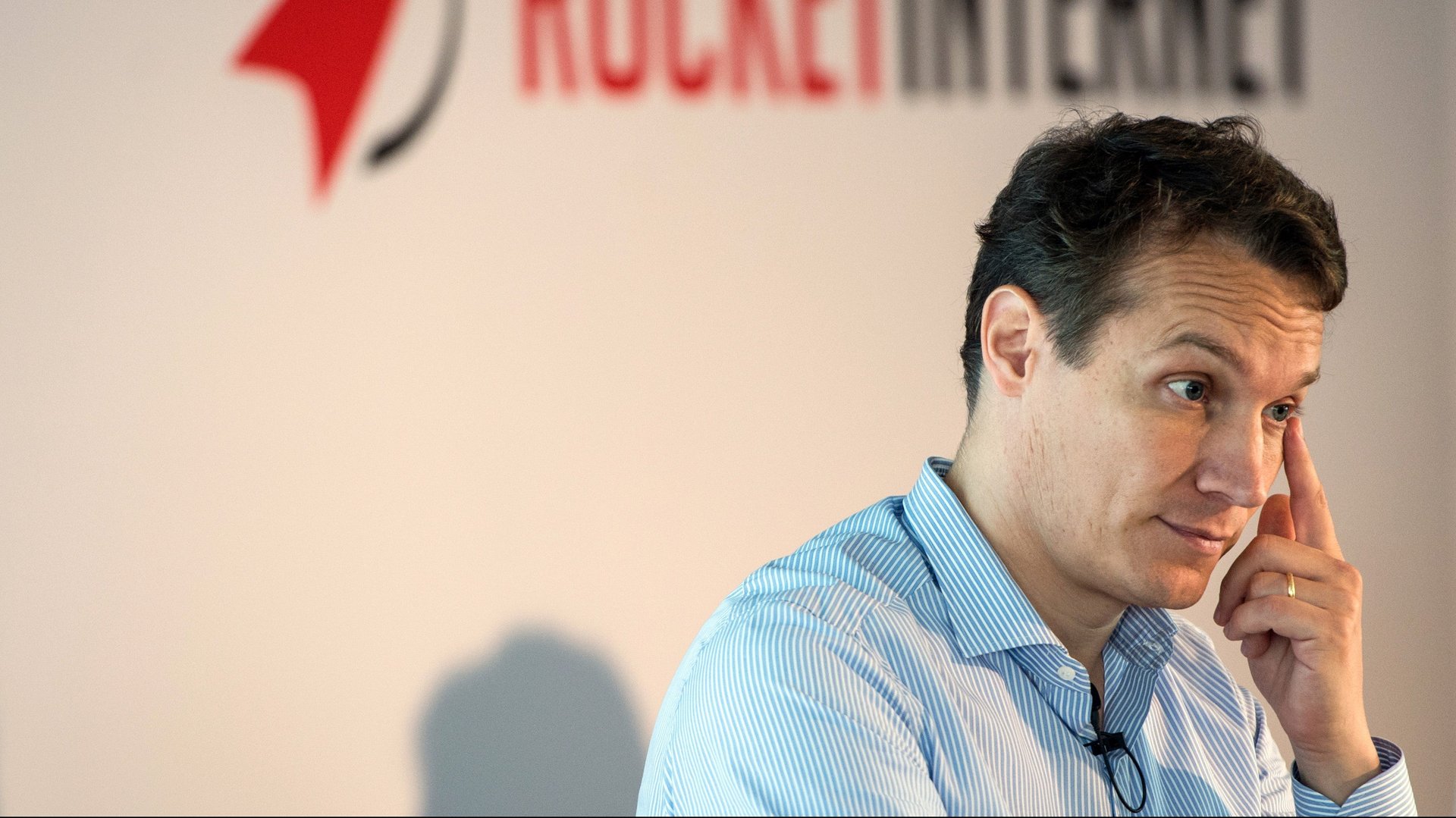Rocket Internet’s deal with Alibaba validates its opaque, unproven, model
Rocket Internet, a Berlin-based quasi-conglomerate of tech startup companies, has made big claims in the past about its process for producing winners. Give it 100 days and it will deploy its “blitzkrieg” system of breakneck investment and growth to give any Silicon Valley-hatched startup a run for its money in new markets.


Rocket Internet, a Berlin-based quasi-conglomerate of tech startup companies, has made big claims in the past about its process for producing winners. Give it 100 days and it will deploy its “blitzkrieg” system of breakneck investment and growth to give any Silicon Valley-hatched startup a run for its money in new markets.
Rocket’s latest deal, selling half its stake in Lazada, an online retailer in Southeast Asia, to China’s Alibaba, appears to validate its model. The German group received $137 million for the stake, valuing Lazada—which launched in 2012—at $1.5 billion. Alibaba then put in an additional $500 million in the company, pushing its valuation to $2 billion.
Rocket says it has invested €18 million ($20.5 million) in Lazada to date, so its return on the sale, including the 8.8% stake it retained in the company, is $313 million—15 times the amount it invested. Not bad for a young, fast-growing-but-loss-making company:
There have been doubts about Rocket’s model lately. In February, it sold a raft of its food-delivery businesses because they weren’t “market-leading.” (The returns on those investments were not disclosed, but some suspect it took losses on the sales.) Rocket’s stock is trading at around half the peak reached shortly after its IPO in late 2014. Investors have complained about its complex and opaque corporate structure (paywall).
When Rocket went public in Frankfurt in September of 2014, its prospectus (pdf) divided the companies in its portfolio into “proven winners” and “emerging stars.” Rocket’s aim was to pursue both high growth and “improved profitability over time” for these companies. But improved profitability has proved elusive, even among the “winners,” which are defined as relatively mature companies with more than €50 million in revenue:
This is why the Lazada sale is so fortuitous for the Samwer brothers (Alexander, Marc, and Oliver), who started Rocket Internet in 2007. In Alibaba, they found a buyer with deep pockets ($17.9 billion in cash, according to its last annual report) and extensive e-commerce expertise in emerging Asia.
The Lazada takeover will roughly double Alibaba’s non-China sales for its consumer-facing e-commerce platforms, such as Taobao and Tmall. And it’s a bet that the company can afford to lose, if it comes to that—Alibaba’s Chinese sales are more than 30 times its sales outside of its home market.
Even with this confluence of favorable factors, Rocket’s returns on Lazada aren’t spectacular. If Rocket had succeeded in getting Lazada listed, it might have done better. Take Square’s IPO last year, which took place amid worsening sentiment for tech exits: It saw some late-stage investors lose money, but still delivered 40 times the initial investment of its early backers.
The Lazada deal is also less impressive when seen in the light of the tech industry’s greatest exits. Kleiner Perkins Caufield and Byers earned more than 200 times its invested capital when Google went public in 2004. And when it comes to trade sales, Sequoia got 50 times its money back when WhatsApp was sold to Facebook in 2014.
It won’t be easy for Rocket to find another buyer with the same cash pile and desire to spend it as Alibaba for its other businesses, but Rocket has found capital from unlikely sources before. If it succeeds, the Berlin startup factory will continue to chug along.